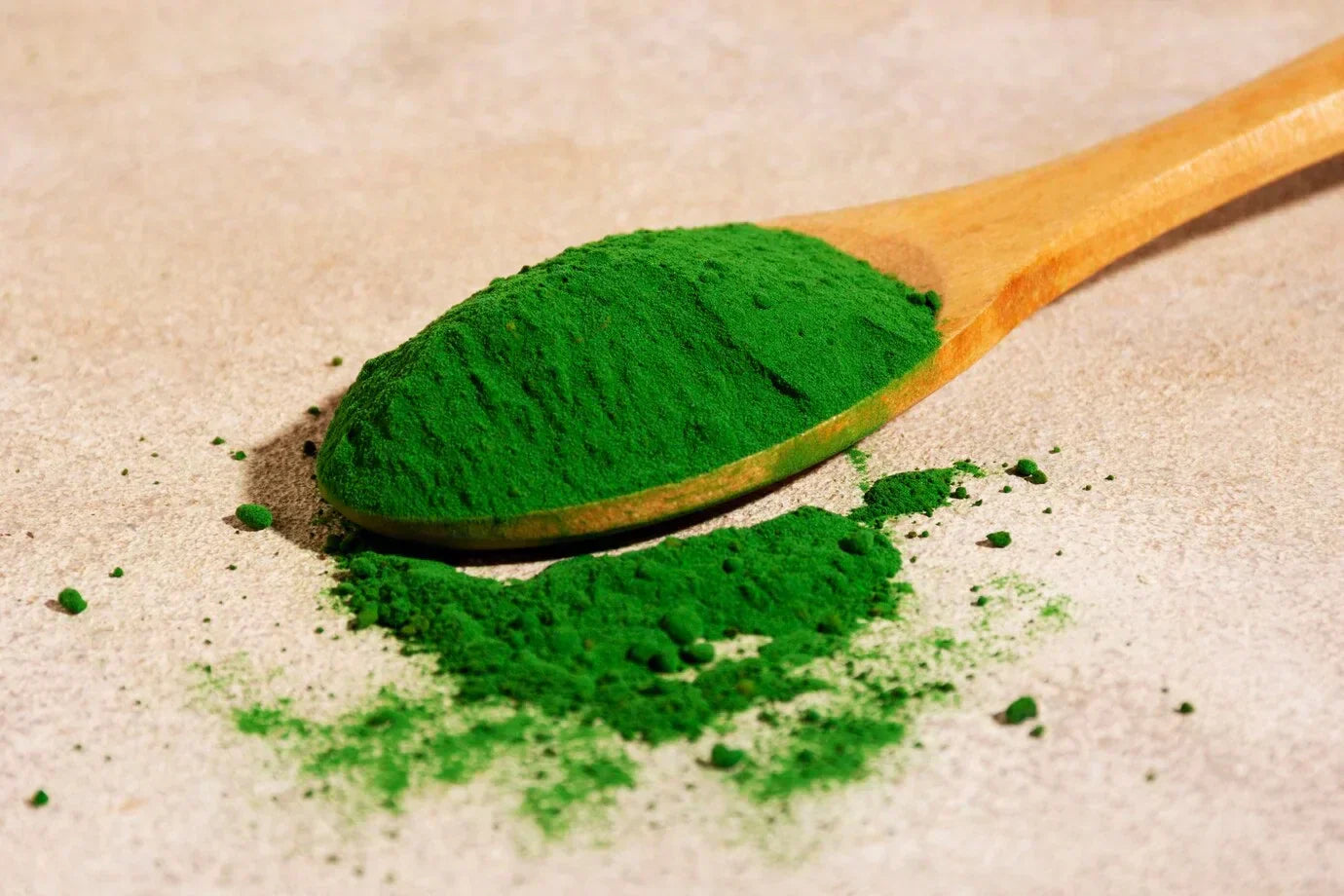
Why is spirulina one of the most powerful superfoods for athletes?
When it comes to optimizing performance and recovery, diet plays a key role. Nutrient-rich superfoods are a real boon to our bodies. Whether it's goji berries, chia seeds, or turmeric, each superfood has beneficial properties. But among them, one in particular stands out: spirulina.
Why is this microalgae so popular with athletes? What are its concrete benefits? How can you safely incorporate it into your diet? This is what we're going to discover together.
What is spirulina?
Spirulina is a blue-green microalgae that lives in warm, alkaline waters. Used for centuries by certain civilizations, it is now cultivated worldwide. Its nutritional richness makes it an ideal ally for athletes.
It is mainly made up of protein (about 60% of its dry weight), but also contains vitamins (B, E and K), minerals (iron, calcium, magnesium) and powerful antioxidants such as phycocyanin.
What are the benefits of spirulina for athletes?
An exceptional source of protein
With a higher protein content than meats and legumes, spirulina promotes muscle recovery and the development of lean mass. Its amino acid profile is nearly complete, making it attractive to athletes looking to optimize their nutrition.
Better endurance and recovery
Spirulina helps improve muscle oxygenation and combat fatigue thanks to its richness in iron and antioxidants. It thus helps reduce oxidative stress linked to physical exertion.
Enhanced immune support
With its vitamin A, B6 and B12 content, it stimulates the immune system, preventing fatigue and infections, which are common among athletes during periods of intensive training.
Weight management aid
Low in calories but very nutritious, it promotes satiety and can help regulate appetite, which is ideal as part of a cutting or weight control program.
How to consume spirulina?
It is available in different forms: tablets, powder, and flakes. For athletes, it is ideal to add it to smoothies, juices, or in capsules before or after training.
Example of daily use
- Morning : 2-3g in a smoothie or orange juice.
- Post-workout : 3-5g in a shaker with BCAAs.
- At dinner : 1-2g sprinkled on a salad.
Spirulina in food
For those who want to easily incorporate spirulina into their meals, there are spirulina pastas. A simple and delicious option to benefit from its benefits while varying your culinary pleasures!

Incorporating spirulina into your diet means choosing a superfood with multiple benefits. Whether you're a top athlete or a recreational athlete, it can help you improve your performance, reduce fatigue, and optimize your recovery. So, are you ready to test its benefits?